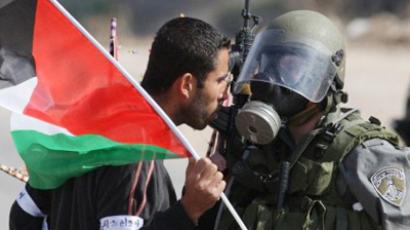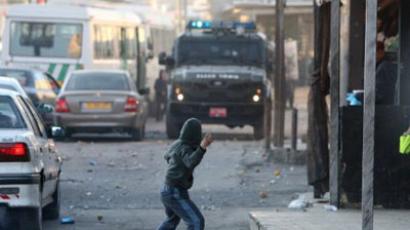Talk in diplomatic circles: Israel and Palestine discuss two-state solution
For the first time in over a year, Israeli and Palestinian representatives sat down to the negotiating table in an attempt to resolve the Middle Eastern peace deadlock. This time, they met in neighboring Jordan.
The issues on the table, as RT’s Paula Slier reports, were borders and security, with the Palestinian Autonomy reiterating their call for an Israeli withdrawal to the pre-1967 borders as the basis for the two-state solution. They also called for the release of all Palestinian prisoners as an indication that Israel is serious about the resumed talks. Further, the Palestinians continue to insist on a freeze of the construction of illegal Jewish settlements in the West Bank and East Jerusalem. But while the talks were underway in Amman, Israel's Lands Administration announced that it was issuing tenders for some 300 new homes to be built on occupied Palestinian territory, an indication indeed of Israel's commitment. Israeli representatives maintained that no preconditions can be placed on the negotiations, which they say must address every current issue. The Israeli side demanded its own indication of commitment from the Palestinians, in the form of ceased rocket attacks from Gaza into Israel. Jordanian Foreign Minister Nasser Judeh, who was present at the talks in the Jordanian capital along with representatives of the Middle East Quartet, said “no major breakthroughs have been made” – but also that “it is very important that the two sides spoke face to face.”It is the first time negotiators from Tel Aviv and Ramallah have sat down together in over a year, with the last attempt at peace talks breaking down in September 2010.But even though many were excited to see Palestinian and Israeli negotiators at the same table, some – including the concerned parties themselves – said in advance that the meeting is only a discussion to figure out how – and indeed whether – negotiations can proceed.Tension in the Middle East is palpable, though both sides are downplaying the importance of the Jordan meeting, refusing to call it a “negotiation.” But pressure is mounting, with Palestinian President Mahmoud Abbas warning of potential “new measures” against Israel if Tuesday’s meeting fails to bring about a resumption of negotiations.














